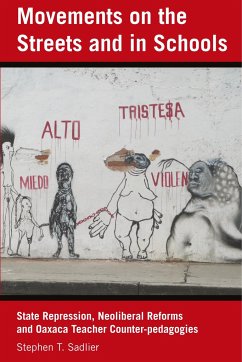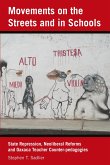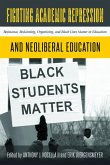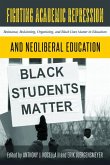Research links social movement and education, but almost no related studies address classroom practices. Oaxacan teachers in this ethnography are political and pedagogical pioneers who move between the streets and schools. This book materializes from the practices of politics in classrooms and the manifestations and rural primaria communities in a major migration-sending region of Southeastern Mexico. Movements on the Streets and in Schools theorizes teaching and activism in creative tension, with what Anna Tsing called "friction of global connection." Using friction, three contentious concepts emerge: quality, patrimony, and governability. Through the engaged universals of quality, patrimony, and governability, this book describes and analyzes how activism and teaching intertwine on the city streets and in the rural schools. Here, teaching, between uprisings, police raids, and austerity reforms, reveals how operating critically transcends a centered critical project. For instance, quality, to state and corporate philanthropists, leads to standardization, but parents and pupils rally around quality education to demand learning-centered schools. Likewise, patrimony may drive heritage for the tourist market, but patrimony also permits teachers to claim labor rights on historical grounds. Lastly, governability, an NGO imperative for Global Southern countries like Mexico, becomes pedagogical when the misrule of state authorities leads to police raids against teachers and cuts to public education. Movements on the Streets and in Schools is timely, as the activism-schooling nexus has just begun to generate interest with high-profile events on and around campuses worldwide. Both pre- and in-service teachers, education activists, administrators, and professors alike will find this book essential in bringing activism into their classroom practices in a clear and cohesive manner.
"What does counter-pedagogy mean today? Within the framework of governmentality studies, Movements on the Streets and in Schools provides some answers as it takes us through critical ethnographic narratives on school life and life in the streets of Oaxaca and Mexico City. The author describes counter-pedagogy as 'an action within the normative frameworks of state-funded public education where the actors enact their education in a different way,' to then conclude that 'government, the conduct of conducts, leads to chances for counter-pedagogies, not in spite of the state that drafts educational reforms and deploys repressive force but rather through these measures.' Detailed ethnographic research carried out over years and lucid analysis allows us to understand the complexity of everyday struggles for public education waged by teachers not only in school but also in the street. The book winds between struggles in Mexico that date back to the beginning of the twentieth century and meticulous current fieldwork that gathers multiple voices. It sheds light on the tragedies-like the forty-three teachers in Ayotzinapa killed by government forces-that continue to ravish Mexico and the region in general. Talking about governmentality and resistance the book, then, has a lot to say about critical pedagogical practices and the everyday struggles for public education, not only in Mexico and Latin America but-most likely-in other regions as well." Silvia Grinberg, Universidad Nacional de San Martín, Argentina








